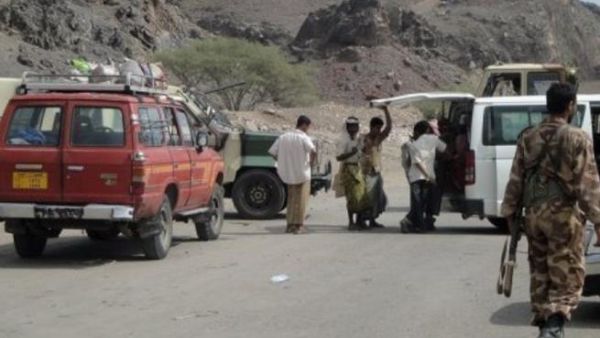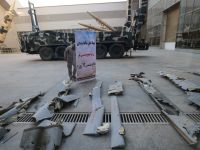Abas Mohammed spends his day from dawn until dusk driving a minibus, known by locals as a "debab." He calls his routine a daily struggle. He is just one of the many drivers in the city who is constantly at the mercy of unregulated station ‘organizers’ who demand payment before they allow drivers to continue.
“There is no benefit provided by the bus station regulators, but their thuggish behavior and extortion,” said Abas Mohammed, a bus driver on the Al-Sateen Street-Shumaila Road in Sana'a.
“If we refuse to give them money, they attempt to attack us,” he said. “I have no other source of livelihood. This bus is the single means that helps eke out a living.”
Mohammed and fellow drivers feel powerless against these men. Regulators are supposed to be appointed by local councils and work with traffic police to control the movement of buses in the stations and provide assistance to passengers. In theory, their presence should benefit everyone, but due to oversight issues, drivers have no way to distinguish between official regulators and those looking to extort drivers' pocketbooks.
The imposters have become increasingly present and aggressive according to drivers.
One station regulator broke Mohammed’s windshield and threatened him with a club.
“Every one of the bus station regulators has a stick at hand. They use it in case they are disobeyed,” he said.
Ibrahim Al-Hashadi, another disgruntled bus driver, said the problem has been exacerbated because of the state's weak authority and the absence of law enforcement.
He says the mayor needs to set up a syndicate in order to produce a system that is regulated and benefits all.
“We want to find a place to air our complaints so that extortion and thuggish behavior are stopped,” he said.
Bus drivers have organized protests several times to try and grab official's attention.
Jamal Al-Hamadi, another bus driver said he is happy to pay regulators as long as there is an official, transparent system that certifies them.
Qais Al-Eryani, Sana'a's traffic manager, said he has tried to curb this problem by bringing drivers and regulators together to resolve issues between them.
The Traffic Department says they selected three main bus stations: Shumaila, Madbah, Bab Al-Yemen that they organized and regulated.
Al-Eryani said they have been working on this for three months and that this has contributed to a decrease in the unofficial collection of money by fake regulators.
“Some of the regulators are not officially appointed. Thus, we capture them and take to the police station,” he said.
Nasser Al-Arasi, a station regulator who has been working for five years and collects YR100 from each driver's trip, defended his position. He said regulators are appointed by the local council in an organized process.
“I take YR50, and the rest goes to the local council,” he said.
Further complicating matters, a regulator in Al-Mishbahi roundabout, Zayed Mohammed, said some regulators are appointed by drivers themselves or by owners of bus stations in exchange for mutually beneficial financial arrangements.
“I take YR 50 from every bus each trip. I collect YR7000 a day,” he said.
Mohammed takes no issue with the current system.
“I am looking to make a living, and this my right.”

Bus drivers in Yemen complain of the 'organizers' who can be imposters and act violently







